
There’s a lot of buzz going around ‘Free Basics’ – A platform that Facebook is trying to get it launched full-fledged in India. But what exactly is Free Basics? Does it really mean that Indians will now have access to basic Internet for free? Let’s find that out in detail. Whether the claims are too good to be true or it’s just another scam that can prove to be really disastrous in future!
Why ‘Internet.org’ was renamed to ‘Free Basics’?

About a year ago, when Internet.org was launched in India, countless netizens protested as it was against net neutrality. Shocked by this response, the marketing department of Facebook renamed it to ‘Free Basics’ and re-launched it here as they thought Indians would never say ‘no’ to anything that says ‘free’. Facebook has been aggressively marketing to get it accepted by India’s Telecom regulator. Right from publishing full page newspaper ads, roadside banners and online ads, they have also started sending constant notifications to all their Indian Users to click a button which will direct an email to TRAI saying that you support ‘Free Basics’. They ‘accidentally’ sent these notifications to foreign users as well. And, if you do not accept their pesky notifications, they make you feel guilty for not supporting ‘digital equality’ by showing the list of your friends who support it. By the look of these ads, it seems like Facebook is doing a huge favor for India through ‘Free Basics’ and our government is acting all evil trying to put a stop to their good efforts. But is that so?
What is Free Basics?

Free Basics is a platform given by Facebook in association with telecom operators, where certain basic internet websites will be available free of cost. This means, if you are visiting Facebook or its partner websites, you don’t have to pay internet charges at all. However, if you are visiting other websites such as Google, you need to pay data charges as you have been doing all this while. In India, Facebook has tied up with Reliance to make certain websites free of cost. However, while Facebook claimed that the initiative would allow people who cannot afford the Internet to get access to ‘information’ and connect with the world, a number of people and organizations have been opposing it. And this is because ‘Free Basics’ does not mean free access to the whole of Internet.
What is Net Neutrality?

Net Neutrality is the principle that Internet service providers and governments should treat all data on the Internet the same, not discriminating or charging differently by user, content, site, platform, application, type of attached equipment, or mode of communication. It is one of the fundamental principle due to which Internet exists in the form we see today. Source: Net neutrality- Wikipedia
Internet Access v/s Services on the Internet

Google is a service and so is “Internet access” – and if many of you are using Google service for free – then there is no point in fighting or debating for “Internet access” which is also a service. Google service also requires infrastructure and Internet Access also requires infrastructure – it depends on the business model of the companies on how they generate revenue. Internet is an open protocol and there is difference between protocols and infrastructures. What we pay for is “Internet access” because that requires a lot of infrastructure and we pay rent for using that infrastructure. Gmail or Facebook are services but not the internet. Internet is collection of those services from which the user should be allowed to choose what he/she likes.
What does Reliance gain from this?

Here’s the deal. You have two options to access Facebook: (1) You can choose Reliance network, and access it for free; or (2) You can choose other telecom operators and pay for the same service. What will you do? It is obvious that people would prefer to go for Reliance. However, once you register on the Reliance network, you realize that actually you need more than just the websites available on Free Basics. Free Basics does not have Google, YouTube, Amazon, Flipkart, Yahoo, LinkedIn,Twitter, Snapdeal, HDFC, ICICI, PayTM, eBay, IRCTC, NDTV, Rediff, Quora, Quikr, RedBus, BSE/NSE and the list goes on. The basics of Indian internet is not on Free “Basics” and you will soon realize, (Click on the image below) that it offers nothing significant, and you will anyway need to pay for the other services.
When these people, who are now interested in internet, get converted to full payment service, then Reliance becomes their obvious choice. Therefore, telecom operators gain from Free Basics because it increases their subscribers.
What happens if other Telecom Operators join?

We now know Reliance is interested in Free Basics as it gives them an edge over other telecom providers. However, what if other telecom operators also join in? Imagine if all the major telecom operators in India such as Idea, Airtel, Vodafone etc. join the Free Basics platform, what happens then? Reliance will not have any inherent advantage and in that sense, all the websites listed above will be available for free on all the networks. In that case, these telecom operators will gain nothing and will all be just killing themselves? The fact is that these telecom operators are interested in this initiative because it gives them more subscribers. It increases the size of the market as a whole. A lot of people from rural India who have never used internet on their mobile phones will now start using internet. In this whole initiative, the telecom operators will eventually win, because their subscriber base will go up. You may argue that they are not charging for it (because it is free basics). But this argument is foolish because you and I both appreciate that the websites offered by Free Basics are not even basics. They are not offering useful websites like Khan Academy or Amazon or Quora or even Google for that matter. Therefore, anyone who subscribes to Free Basics will eventually want to shift to the full version of internet.
Why is Free Basics a problem?

One thing we must understand is that internet has always been free, fair and democratic in terms of access of information and usage. But today with the dawn of Free Basics, this space is under threat. Even though we do not discuss or see it around us, the World Wide Web dictates our present and future in a manner more real than we can imagine. The ones who are joining the internet today or in the future should be able to use the internet without any restriction, just the way it is meant to be. The issue here is that Facebook’s Free Basics app offers some Internet services (like Facebook) for free, but doesn’t offer the entire Internet for free. This violates net neutrality, the concept that all content online should be treated equally.
Plus no competitor of Facebook would use free basics for obvious reasons. We must never forget that it’s a public company. Even if Marks intentions are good, in difficult times they would use everything they have like targeted ads, big data and many more. Facebook at present sells your data to NSA (source) and this is a security issue for India. So you can anticipate what they can do in future. But the major problem is the ecosystem which is what they are trying to create over the coming years.
Today, there are nearly 1 billion websites and if we consider that there are 3.5 billion users of the Internet, 1 (which could be you) out of every 3.5 such users also offer content or services. The reason that the Internet has become such an influential force for change in such a short period of time is precisely because anybody can connect to anyone, anywhere in the world, not only to receive, but also to provide content or service. This gives both sides equal access to the Internet. But unfortunately, all this would stop if the Internet Service Providers (ISPs) or telecom companies (Telcos) are given the right to act as gatekeepers.

No ISP or Telco can decide what part of the Internet or which websites we can access. Tim Wu, the father of net neutrality, has written that keeping the two sides of the Internet free of gatekeepers is what has given a huge incentive for generating innovation and creating content. This is what has made the Internet, as a platform, so different from other mass communications platforms such as radio and television. Essentially, it has unleashed the creativity of the masses; and it is this creativity we see in the hundreds of millions of active websites. Facebook’s ads and Mark Zuckerberg’s advertorials talk about education, health and other services being provided by Free Basics, without telling us how on earth are we going to access education or doctors and medicines through the Internet? It forgets that while English is spoken by only about 12 per cent of the world’s population, 53 per cent of the Internet’s content is English. If Indians need to access education or health services, they need to access it in their own languages and not in English. No education can succeed without teachers. The Internet is not a substitute for schools and colleges but only complements and that too if the material exists in the languages understandable by the students. Similarly, health demands clinics, hospitals and doctors and not just a few websites on a private Facebook platform.
The danger of privileging Free Basics over a public Internet is that it initiates a new kind of digital divide among the people. A large fraction of people who join Free Basics may come to believe that Facebook is indeed ‘The Internet’. Just the way the British Empire was based on the control of the seas, whoever controls the vast oceans of data today, controls the global economy.
Net neutrality is not an obscure subject which concerns only a few netizens. It is fundamental to the world, in which the Internet is a fountainhead of knowledge, a platform for communication and an artery of commerce. The one who wheels access to the Internet will control our future ultimately. This is what the current battle over Facebook’s Free Basics is all about.
Why hasn’t Free Basics launched in the US or other major economies?

This scam has been pushed through these poor, mostly helpless African nations who have no experience of anything better and who have no ‘activists’ like us who tell their governments they’re raising a generation of deprived children with no access to the real internet. The more online-progressive countries like Japan, Norway, Finland, Estonia and Netherlands have banned programs such as Free Basics. With over 12 lakh emails to TRAI last year, we worked our way towards a ban for it in India too – but Facebook has since spent a large amount of cash in ads, lobbying, diplomacy and PR to try to get it unbanned here. They’ve managed to re-open a closed issue, again. And now we need to re-shut Free Basics. This program, call it digital apartheid if you will, has been roundly condemned by experts ranging from Tim Berners-Lee, the gentleman who invented the world-wide web, to Ph. D. researchers to civil society officials working in the field, globally. Just because countries like South Africa did not know how to say no to Facebook doesn’t mean India has to say yes. In fact, India saying no to this digital apartheid should hopefully inspire the African and other poor nations to kick out this evil program that serves no one but Facebook at their government’s expense. The issue in India is big, not only because it is home to Facebook’s second-biggest user base outside the U.S., but because whatever happens in India will likely set a precedent in other important countries, like Indonesia and Brazil.
Click on the image below for the list of countries where Free Basics has been launched.
In the US, Facebook is strongly on the side of net neutrality – but in the developing and undeveloped world, they speak from the other side of their mouth, blatantly seeking to violate net neutrality and to give our citizens here a second-rate online experience that they wouldn’t even dream of offering people in their home country. There are almost 50 million unconnected people in the US. Why haven’t Facebook tried offering them this shoddy program and see how the Federal Communications Commission (FCC) responds to them? We Indians do not need a “bridge” to the full internet, when we can have the full internet itself. The “bridge” is a fancy invention by Facebook to refer to a holding area where Facebook holds, numbers and tracks people before they pay up and wander off into the real internet. Study after study has shown that the poor and the less fortunate in undeveloped nations vastly prefer limited access to the full internet (for example a data limit or a speed limit) rather than full access to a few limited sites – like the one ‘Facebook Free Basics’ offers. They want the freedom of choice. Why hasn’t Facebook chosen the other, proven options to bring people to the internet that do not violate Net Neutrality?
Is Facebook doing this as charity?

Forget their lies about “wanting to connect India” – if they really did, they would offer the open and full internet to everybody for free. The real reason is something they have never denied: their rivalry with Google and their questionable stock price. Both companies have 1.5 billion users, but Google makes Rs. 70,000 crores while Facebook does less than one-fifth as well. In other words, for every new user that comes on the internet, Facebook makes Rs. 8, while Google makes around Rs. 48. Facebook’s stock is valued at a much higher multiple than Google. With no reason to support the extreme price, it will fall. For Facebook to keep their stock price high, and to keep Zuckerberg and wife as rich as they are, they need to find new users who sign up for Facebook, but at the same time do not use Google. Thus a strategy via this program was planned out to offer Facebook but not Google at the mass, poor people level. Who is outside the first 1.5 billion people? It’s mostly people in India and China. But since Facebook is banned in China, the essential to Mark Zuckerberg’s balance sheet becomes us, Indians! Hundreds of crores of ad spend, against tens of thousands of crores of valuation is just nothing!
The internet market growth is getting saturated in the western world as most people are already using internet. India and other Asian countries have a large untapped population who are yet to use internet. Facebook wants to acquire these users by any means possible. One easy way to make Facebook popular among these users is to give it for free. Do you know how drug-agents get college students addicted to their drugs? They first give it for completely free. Then once the students get addicted to it, they start charging them heftily. Free basics is launched for Facebook’s best interests. Otherwise why are they so pushy about this and investing millions for the ad campaign itself, when people are clearly protesting against it? Reliance – the official network partner of Free basics advertises it as ‘Free Facebook’ on newspapers (Source)
Who will get affected?

There are many other reasons why Facebook’s Free Basics Digital Apartheid is bad. We need to get this fact across to people that Free Basics is not offering anyone internet but only sponsored content. We must understand that internet will stand true to its name only if it gives equal opportunities to all the people. If Free Basics starts operating full-fledged, it will be unfair because those websites will now have more viewers than others. And in this way, the other websites will suffer. And the very premise on which internet flourished, will be destroyed. Why is a company like Flipkart able to compete with Amazon today. This is because they have an equal platform called the internet. Today, they are competing only on the basis of their services. This is a healthy competition and it is beneficial for everyone. Startups like Ola are able to efficiently compete with established taxi companies such as Uber. Just imagine what would have happened if Ola did not have an equal opportunity? What would have happened if Uber was available for free and not Ola? Internet is giving an equal opportunity to a number of people because all of them can reach so many users at the same time. This is the magic of the internet. Therefore, with the advent of internet, people are able to genuinely compete only on the basis of services that they offer. Free Basics is going to destroy that. This model will give some companies an edge over the others and will therefore discourage other innovative ideas.
It’s bad for entrepreneurs – your business can’t be discovered by these new potential users on the Internet until you advertise on Facebook. The same goes for big businesses. If a lot of people switch to free internet and Free Basics – then paid-subscribers can be hurt big time. Suppose you start a website that caters to the weather forecast requirements of farmers. With the help of Free Basics, a lot of farmers are able to use internet. However, they cannot access your application because your website is not available in the Free Basics platform. On the other hand, assume a farmer wants to buy a television set for his family. He has an option of buying from A or B. However, he can only access A, because other websites like B are not available for free. Maybe, he ends up paying more for that TV set. The issue with Free Basics is that, it is controlling the content available for the subscribers of internet. Therefore, your website will not be able to reach a lot of subscribers just because you don’t have a tie up with Free Basics. This is outright unfair – both to the website owners (such as the person who works hard to create a useful website for farmers) and also the subscribers (such as the farmer who doesn’t even know that he can have better facilities on other websites). This is against the principle of net neutrality. This is applicable to urban India/metros where the mobile internet is exhausted. Having understood the scenario pretty well, Facebook can slowly take control of the internet by arm-twisting all telecoms into being the sole provider of free internet bundle.
Facebook or Whatsapp wasn’t a basic internet service 10 years ago. If some other company X had offered their service free from past 15 years then Facebook/ Whatsapp wouldn’t have even existed. The things which may look basic now may not be basic in the next 10 years. By giving Facebook control of which apps to give for free, we are creating a monopoly. New startups won’t be able to compete as everyone will use the Facebook’s free alternative. For example:- If free basics was launched in 2010, then Whatsapp would never have been so popular as ‘Facebook Messenger’ would have been free, while you would have to pay data charges to use ‘Whatsapp’ or any other service. This creates a monopolistic environment where only Facebook will thrive.
Have any other telecom companies offered a Zero-Rating platform?

Earlier, Airtel had offered a similar platform called Airtel Zero, using the zero-rating concept. Zero-rating is a practice where internet service providers (ISPs) do not charge customers on data for select applications that they use. Following a public outcry from those who want a free and equal internet, a number of firms, including Flipkart, pulled out of Airtel Zero. Similarly, Cleartrip and NDTV had also pulled out of internet.org. Free Basics operates on the zero-rating principle.
What we really need to get India digitally connected?

There is no denying that a lot of users in India are not connected to the internet, and we know that they would be better off if they were genuinely connected to all the plethora of services that internet can offer them. But this cannot be done by differentiating between some websites over others. Moreover, the power of differentiation cannot be controlled by a single entity (Facebook). This is the case of too much power in the hands of too few people, and this is always disastrous.
While the Free Basics platform has connected only 15 million people in different parts of the world, in India, we have had 60 million people join the Internet using mobiles in the last 12 months alone. And this is in spite of the high cost of mobile data charges. There are 300 million mobile broadband users in the country, an increase fuelled by the falling price of smart phones. In spite of this increase in connectivity, we have another 600 million mobile subscribers who need to be connected to the Internet. Instead of providing Facebook and its few partner websites and calling it “basic” Internet, we need to provide full Internet at prices that people can afford. This is where the regulatory system of the country has to step in. The main barrier to Internet connectivity is the high cost of data services in the country. If we use purchasing power parity as a basis, India has expensive data services compared to most countries. That is the main barrier to Internet penetration. Till now, TRAI has not regulated data tariffs. It is time it addresses the high price of data in the country and not let such prices lead to a completely truncated Internet for the poor. There are various ways of providing free Internet, or cost-effective Internet, to the low-end subscribers. They could be provided some free data with their data connection, or get some free time slots when the traffic on the network is low. 2G data prices can and should be brought down drastically, as the telcos have already made their investments and recovered costs from the subscribers.
Ways Facebook can help without violating Net Neutrality, but they won’t!

There are many, many proven and better ways to get the less fortunate on the Internet – rather than wearing the Facebook Free Basics handcuffs. Schemes such as Gigato offer free data for normal usage of apps. The Mozilla Foundation runs two programs for free and neutral Internet access. Facebook could work with them. Mozilla in partnership with Grameenphone in Bangladesh allows users to receive 20 MB of data usage for free each day, in exchange for viewing an advertisement. In Africa, Orange users get 500 MB of free access on buying a $37 handset. In India, Aircel has begun providing full internet access for free at 64 kbps download speed for the first three months. Facebook could sponsor and expand that. Facebook can give all Indian users free full access to internet upto a certain data limit every month. For instance, 100MB data free for everyone every month without any restrictions. They can give Free internet at low speeds upto a certain data limit. They can also provide ad supported free internet, without restrictions. They could give subsidized data coupons like Rs.10 for first 200MB of the month. Facebook could help lay the infrastructure (cables, routers etc) to connect villages/rural towns. They could offer free unrestricted internet to poor people in selected regions. They can create something like ‘Google Web Light for Slow Internet’ which will reduce the data size of all websites and provide it for free. Facebook can help doing something like these organizations have done, as part of their philanthropic effort.
What is ‘Free basics’/’Internet Dot Org’ according to Facebook?

Free Basics by Facebook provides free access to basic internet services to a billion people all over the world. It makes the internet accessible to more people by providing them access to a range of free basic services like news, maternal health, travel, local jobs, sports, communication, and local government information. To date, we’ve been able to offer these services to a billion people across Asia, Africa and Latin America. By introducing people to the benefits of the internet through these services, we hope to bring more people online and help improve their lives.
That really makes it look so good, right? Who doesn’t want free unlimited internet? You can imagine that a poor kid in a village in central India should be able to see Khan Academy videos, her Dad should be able to look up agricultural spot prices on Google or a commodity exchange and perhaps her Mom could look for a better-paying jobs at a top job board. But no, none of these are a part of the so-called “Free Basics” that Facebook offers the poor. Videos in fact, are not available at all, presumably to conserve bandwidth so it can be retained for more important things like villagers sending each other Candy Crush requests. There is no place these folks can buy, or sell or trade. There’s no Kiva or other bottom-of-pyramid money service. No loans they can receive. No government sites, no banks. No Coursera or EdX or Khan Academy – so it’s not about education either. Forget about entertainment – there’s absolutely none of that. You name any possible site of importance to someone who needs information and opportunities, and it’s not there. But, hey, I guess then you can always poke folks in the next village!
Who is paying for Free Basics?

Telecom operators pay for Free Basics and they get this money from users who pay. By encouraging people to choose Free Basics, Facebook reduces the tendency to bring down data costs for paid Internet access. Free Basics isn’t about bringing people online. It’s about keeping Facebook and its partners free, while everything else remains paid. Users who pay for Internet access can still access Free Basics for free, giving Facebook and its partners an advantage. Internet access is growing rapidly in India. Free Basics is not an open platform. Facebook defines the technical guidelines for Free Basics, and reserves the right to change them. They reserve the right to reject applicants, who are forced to comply with Facebook’s terms. In contrast they support ‘Permissionless Innovation’ in the US. Facebook was criticized in Brazil for misleading advertising (source). Their communication in India is misleading. People find the “Free” part of Free Basics advertising from Facebook from Reliance misleading (source). Facebook says that Free Basics doesn’t have ads, but does not say that it will never have ads on Free Basics.
How Facebook got you to support Free Basics – A sly move!
What can you do to stop ‘Free basics’?

They may claim 3.2 million in support, but how many of those mails are legitimate? Remember this. Internet exists in its current form because of net neutrality. (It is not just a buzz word.) If it wasn’t neutral then you wouldn’t be reading opposing opinions. You can go to Save The Internet! and send an email to TRAI saying you are against this. You can spread this information and ask your friends to also do the same. It is important for the people who know the truth to help others understand it.
Say No To Free Basics! Save The Internet!

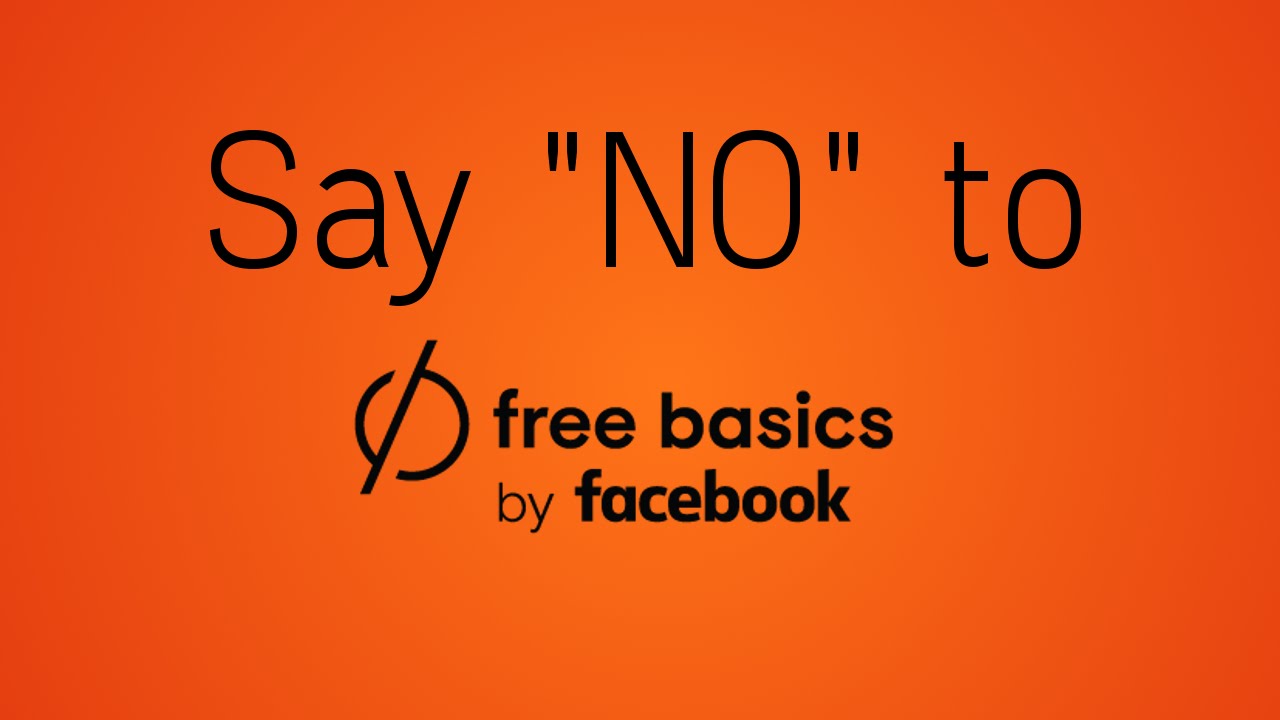
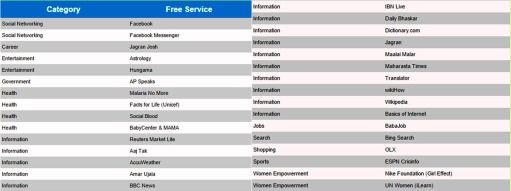
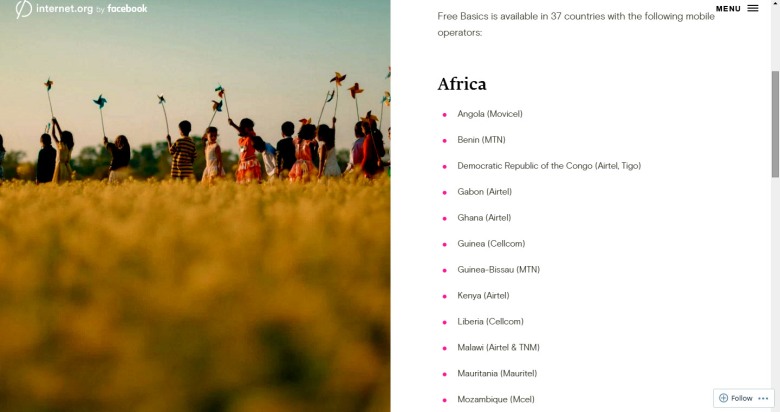
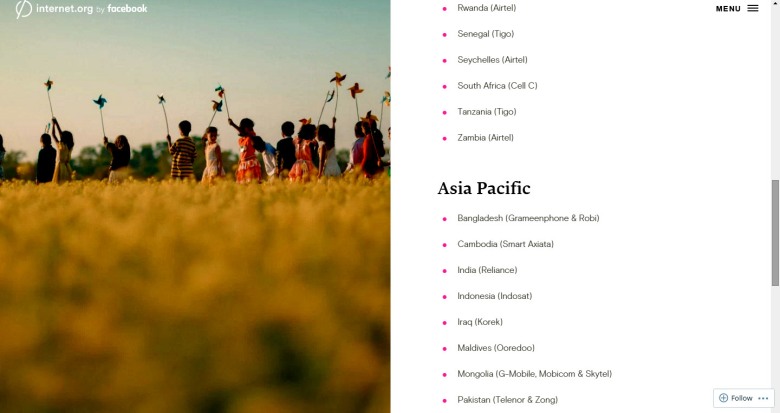
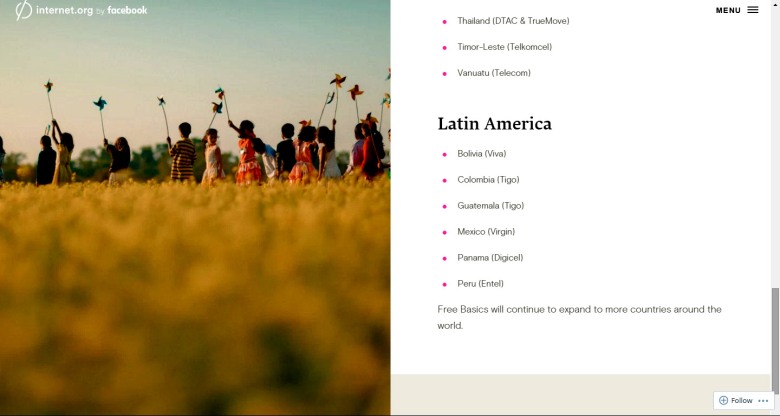
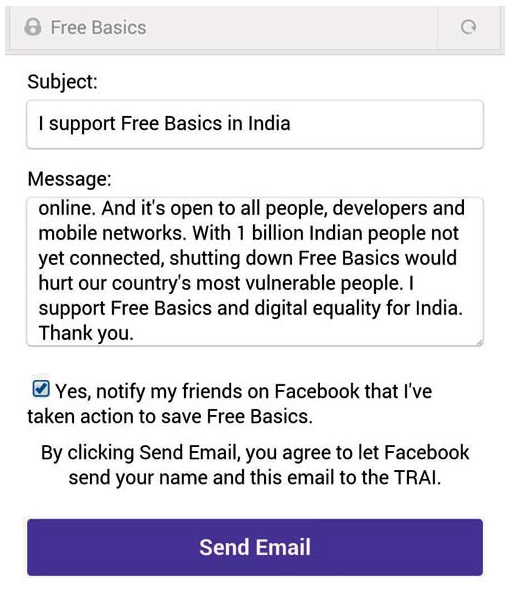

They are looting Indians 😦
LikeLike
🙂
LikeLike
Very nice and detailed
LikeLike
Thank you 🙂
LikeLike
I accidentally had supported Free Basics. Didn’t know what or how deep this shit is until I came across your article. Thanks Divu! I’ll vote against this nonsense. 🙂
LikeLike
Thank you 🙂
LikeLike
I was looking for this! Explains everything so well. Well formulated.
LikeLike
Thank you 🙂
LikeLike
Saw this on a Facebook group. Nice.
LikeLike
Thank you 🙂
LikeLike